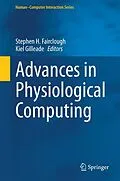In the domain of physiological computing, human physiology is directly monitored and used as input to a technological system. Signals from the brain and body can be used to infer a user's intentions and psychological state which enables a physiological computing system to respond and adapt in an appropriate fashion. A computer game could modify its level of difficulty according to the player's motivation or a word processor could disable incoming e-mail notifications when the user is concentrating.
Physiological computing is an exciting area of research which provides a speculative vision of how we may interact with technology in the future. The field is inherently interdisciplinary and encapsulates a significant breadth of knowledge from neuroscience to engineering. Advances in Physiological Computing provides a broad overview across this emerging area of research and emphasizes the common ground between the different disciplines in the field.
Zusammenfassung
This edited collection will provide an overview of the field of physiological computing, i.e. the use of physiological signals as input for computer control. It will cover a breadth of current research, from brain-computer interfaces to telemedicine.
Inhalt
Introduction.- Meaningful Interaction with Physiological Computing.- Engineering Issues in Physiological Computing.- Eye Tracking and Eye-Based Human-Computer Interaction.- Towards BCI-based Implicit Control in HCI.- Bio cybernetic Adaptation as Biofeedback Training.- Using fNIRS to Measure Mental Workload in the Real World.- Psychophysiological Feedback for Adaptive HRI.- The Drive to Explore.- The Vitality Bracelet.- Capturing HDM for Assisted Memory Recall.
